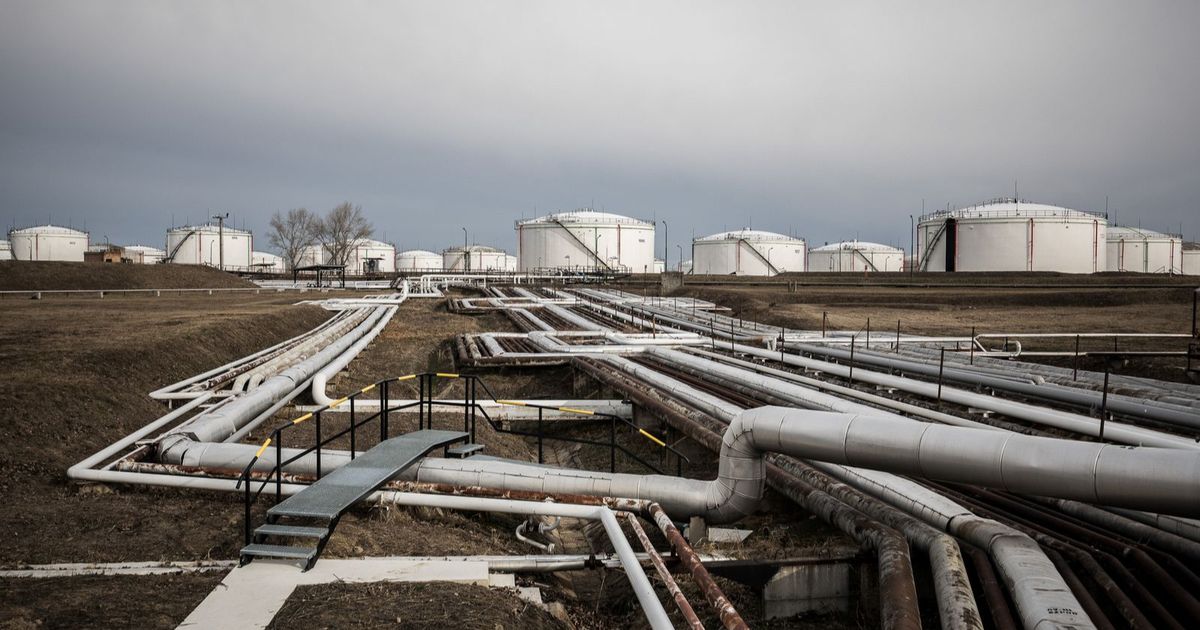Oil prices rose 13% after Israel launched a wave of military strikes against targets in Iran, which arose the fear of the outbreak of new confrontations in an area that produces a third of the global supplies of crude oil. Brent rough has risen by more than $ 78 a barrel, with the largest daily profits since March 2022 when Russia launched its war against Ukraine. Western Texas crude oil when the mediator strongly ascended. Gold was one of the beneficiaries, as investors flowed into secure ports, increasing the price of the precious metal by 1.7% to approach its standard level. Israeli Prime Minister Benjamin Netanyahu said the strikes targeted Iran’s nuclear program and its military capabilities, and will continue “until this threat has been removed.” Iran promised to respond strongly, while Ali Khamenei said that several leaders and scholars died in the attacks. Iranian television reported the appearance of smoke near the Tabriz Raffinering. “We have returned to an environment of escalating geopolitical uncertainty, leaving the oil market on a maximum warning, and it pushes to price a higher risk allowance for any possible breakthrough in supplies.” Market indicators reflect the fear of supplies, the fast oil jump, which is a year’s losses to its date arising from the effects of global trading tension and the “OPEC+” decision to start broken energy faster than expected. This week, JP Morgan Chase warned that prices could reach $ 130 a barrel in the worst scenario in the Middle East. In an indication of the fear of the scarcity of supplies in the short term, the immediate time gap of “Brent” decades (the difference between the two nearest decades) was immersed in the case of “Bakordechnch”, and the difference reached $ 2.08 a barrel on Thursday, from 92 cents. The difference between next December and his counterpart for 2026 also jumped to more than $ 2.35, from 50 cents earlier. The oil option fluctuations jumped to the highest level in three years. Israel’s strikes threaten the core talks. The United States and Iran will hold the sixth round of core talks in Oman on Sunday, but the fate of these talks has become unclear after Israeli strikes. US President Donald Trump has said over the past few days that he has less confidence in the possibility of reaching an agreement with Tehran to reduce its nuclear ambitions in exchange for reducing sanctions. US Secretary of State Marco Rubio said the United States did not participate in the strikes. Earlier this week, Washington ordered some of his employees to leave his embassy in Baghdad, after it threatened Tehran to stop US origin in the area if attacked. The Foreign Ministry also announced that US employees and their families in Israel were prevented from traveling outside the cities. On the other hand, any sustainable increase in energy costs can increase global inflation, increasing the complexity of the duties of central banks that are already facing the effects of the US trade war. Fear of closing the street of “hormuz”, although the most important anxiety in the market is the possibility of crude supplies with the escalation of confrontations, but “OPEC+” has a large surplus energy that can be activated. Mokish Sahif, head of commodity and oil markets at Raystad Eneri, said that the potential retaliation of Tehran, including the possibility of closing the “hormuz” street, could use a narrow water to make the surplus difficult. Gulf, through which a quarter of the global oil trade goes through it. that the aggravation of conflict increases the risk of supplies and the transfer of infection to other markets.
Oil prices rise by 13% to an Israeli bombing aimed at Iran
